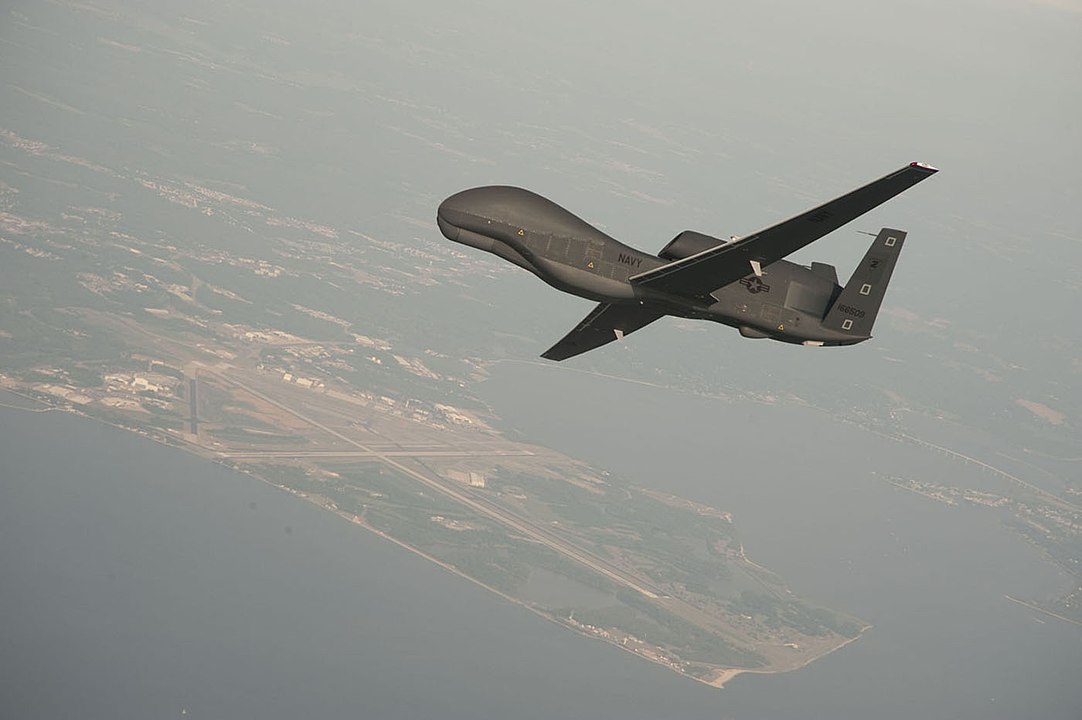My Reply To Empty Wheelerman I
I promised yesterday that I would collect and post my thoughts in response to Spencer Ackerman's and Marcy Wheeler's comments on drones and debates. Rather than try to take on the many big themes they raise in a single marathon post, I'm going to break it up and try to address them separately in two different posts.
Published by The Lawfare Institute
in Cooperation With

I promised yesterday that I would collect and post my thoughts in response to Spencer Ackerman's and Marcy Wheeler's comments on drones and debates. Rather than try to take on the many big themes they raise in a single marathon post, I'm going to break it up and try to address them separately in two different posts. This one will deal chiefly with Ackerman, the next with Wheeler.
Let me start with a point that actually responds to both. Wheeler and Ackerman both begin, in slightly different ways, by dismissing the dispute that initially gave rise to this conversation as less-than-entirely consequential. The dispute, you'll recall, involved my offhand remark that there had been a significant public debate over drones, a claim that Wheeler and Ackerman both ridiculed. Ackerman opens by observing that "Perhaps this bogs down over a disagreement about what constitutes a 'significant' or 'rich' debate." And he then proceeds to note that "Semantics can obscure the issue here." Wheeler, for her part, opens: "I wrote a snippy post yesterday attacking Benjamin Wittes’ claim that we’ve had a public debate about drones. But I wanted to do a more substantive post about something missing from the drone debate." Both posts then go on to make points far deeper and more important than mere arguments over whether we have had a real debate over drones or not.
So I think we can relatively simply put what Ackerman calls the semantic disagreement to rest. We all agree that there has been a public debate over drones. We all agree that the government's classification policies have impeded that debate to some non-trivial degree. Whether one finds that debate nonetheless satisfying for intellectual purposes and, as Wheeler rightly notes, for purposes of life in a democratic society, is a definitional question. I am apparently more satisfied with it then they are, though I share in a limited way some of their frustrations with how the government's refusal to engage the debate has injured it. That said, I certainly don't argue that they should be more satisfied than they apparently are with the quality of the debate we have had. So let's let this matter rest. Each reader and each citizen will have to decide for himself and for herself whether the debate has been adequately rich and significant, and to whatever extent he or she finds it lacking, should push for its enrichment--precisely as my two interlocutors have done.
This brings me to the substance of their arguments, which are far-flung and fascinating--and with many of which I agree. Let me start with Ackerman.
Ackerman makes two substantive points in the remainder of his post. The first is that drones are driving our entire counterterrorism strategy:
I spend probably about as much time covering the drone war as anyone in the press, and I'd submit Danger Room is the best news outlet for exploring the implications of the rise of flying robot assassins. And I would consider none of that a proxy for the country deciding that they ought to be the centerpiece of counterterrorism, hovering in places from Pakistan to the Sahel. That is what we talk about when we talk about drones. We're not talking about the sensor packages on the Reaper, or how many more missiles it carries than does its older brother the Predator. The debate is about expanding a war on al-Qaeda to the far-flung corners of the globe in a sustained, stealthy manner, targeting individuals and networks defined, without rigor or available evidence, as "affiliated" with al-Qaeda. Ben is correct to note that such a strategy is "technology neutral." But that observation overlooks the fact that that in this case, the technology drives the strategy. The vast improvement in drone-derived intelligence (with some human intelligence, doubtfully doubtlessly [oops]) and weapons capability enabled a huge expansion in the ability to wage war while negating or reducing the constraining public costs to it, like troop deployments, financial drain, or conspicuous logistics trails. . . . With that comes a lack of public accounting about the efficacy of the program and the criteria for targeting someone with a drone -- and no objections from pesky congressmen.Ackerman here is really interweaving two distinct points, one of which in my view has more merit than the other. The point with merit is the idea that drones enable the waging of war without many of the attendant public costs--including the sort of public accounting that necessarily happens when you deploy large numbers of troops. I have no argument with him on this score, save that he seems to be looking at only one side of a coin that, in fact, has two sides. Ackerman sees that drones make it easy to get involved in wars. But he ignores the fact that for exactly the same reason, they make it easier to limit involvement in wars. How one feels about drones is partly conditioned by what one believes the null hypothesis to be. If one imagines that absent drones, our involvement in certain countries where we now use them would look more like law enforcement operations, one will tend to feel differently, I suspect, that if one thinks our involvement would look more like what happened in Iraq. Drones enable an ongoing, serious, military and intelligence involvement in countries without significant troop commitments. In other words, without drones, would our involvement in Yemen, Pakistan, and Somalia really be lesser, or might it involve greater exercises of force? Would we really now be able to contemplate a withdrawal of large numbers of troops from Afghanistan, a withdrawal predicated on our ability to conduct ongoing counterterrorism operations from more stand-off positions? My point is not that drones are a magic bullet; they aren't. But their precision and safety and relatively low cost do allow the country to contemplate limited involvement in conflicts that might otherwise prove magnets for escalation and quagmire. For Ackerman's second point--that the technology is driving the strategy--I have less sympathy. Big technological changes always drive the strategy. We saw trenches during World War I because people had developed machine guns and had to keep their heads down. We saw the nuclear standoff during the Cold War because we had developed the ability to destroy the world--and used that ability to keep a generalized European peace and, more generally, to prevent open great power conflict. The fact that technology is driving the strategy should not itself be a source of anxiety. It is a fact of life. The anxiety should arise only if one thinks the strategy itself is wrong. Finally, Ackerman concludes with a point close to my heart, breaking with the overwhelming center of gravity of the Left and arguing for a revamped AUMF and suggesting that the passage of such a bill would present an excellent occasion for the debate he wants to see:
I come down on the side of Buck McKeon and Mac Thornberry, two Republicans on the House Armed Services Committee, who argue that there needs to be a new Authorization to Use Military Force, since Congress hasn't voted on the boundaries of the war against al-Qaida in ten years, when it was a very different enterprise. They're shoehorning in (to my mind) objectionable provisions about detentions, and undermining their case by slipping AUMF 2.0 into the defense authorization bill, rather than having it out separately on the House floor. But their fundamental point stands, and the Obama administration's dismissal of it is risable. That kind of debate would represent the country reconsidering the degree to which it believes it ought to be at war with al-Shebaab, the Haqqani Network, the Pakistani Taliban, Lashkar-e-Toiba or the al-Qaeda affiliates in Yemen or Iraq or the Sahel.I could not agree more, and I want to commend his courage in writing this passage.


-final.png?sfvrsn=b70826ae_3)


